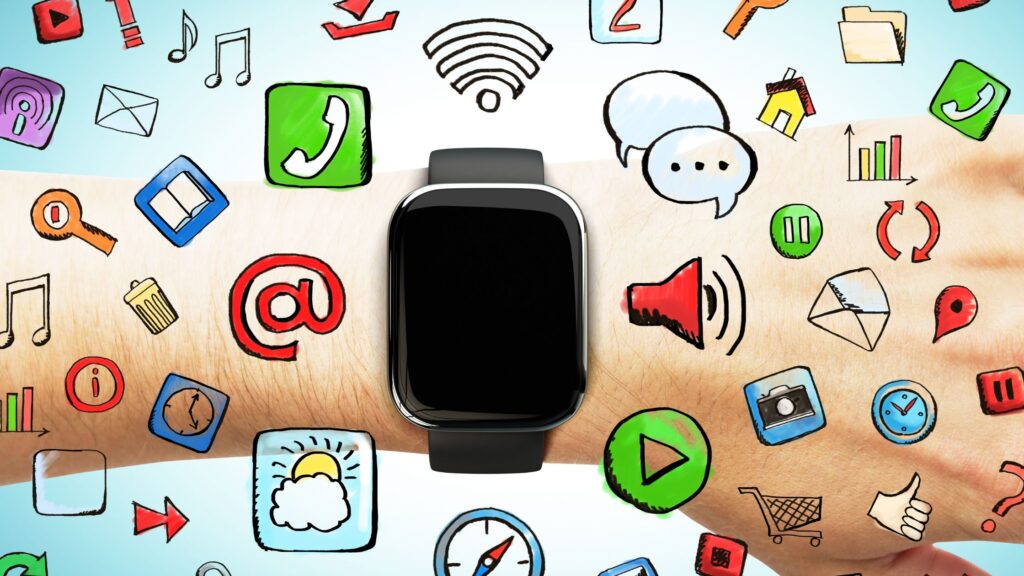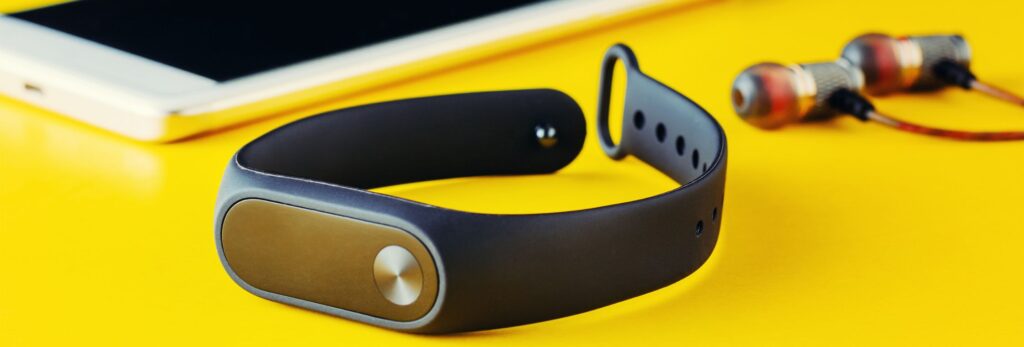Difference Between Smartwatch and Fitness Tracker
Introduction
Understanding the Difference Between SmartWatch and Fitness Tracker is essential for choosing the right wearable device to meet your needs. While both devices offer a range of features to enhance your daily life and fitness journey, their primary functions and capabilities differ significantly. A fitness tracker focuses mainly on monitoring health metrics, such as steps, heart rate, and sleep patterns, making it an excellent tool for those dedicated to fitness. On the other hand, a smartwatch combines fitness tracking with smart features like notifications, apps, and customizable watch faces. In this article, we will delve into the key differences between smartwatch and fitness tracker, helping you decide which device is best suited for your lifestyle and goals.
Table of Contents
On the other hand, fitness trackers focus primarily on health and fitness metrics, offering detailed insights into physical activities, sleep patterns, and heart rate monitoring. In this article, we will explore the key differences between smartwatches and fitness trackers, highlight their respective benefits, and help you determine which device is best suited for your lifestyle and goals.
What This Post Covers
In this post, we will discuss:
- An overview of smartwatches and fitness trackers
- The primary functions and features of each device
- Key differences between smartwatches and fitness trackers
- The benefits of each device
- Tips for choosing the right device for your needs
What is a Smartwatch?
SmartWatch is a multi-functional device that extends the capabilities of a traditional wristwatch by integrating advanced features. It can run apps, display notifications, manage calls, send messages, and even support voice commands. Smartwatches often have touchscreens and can be customized with various apps to enhance productivity, health tracking, and entertainment.

What is a Fitness Tracker?
Fitness tracker is a dedicated device focused on monitoring physical activities and health metrics. It typically tracks steps, distance, calories burned, heart rate, and sleep patterns. Fitness trackers are designed to provide detailed insights into one’s physical activity and overall health, often with a simpler interface and longer battery life compared to smartwatches.
What is the main difference between Smartwatch and Fitness Tracker?
Difference between smartwatch and fitness tracker involves understanding the core functionalities and user experiences. Smartwatches are built to be extensions of smartphones, offering a wide array of applications, notifications, and connectivity options. They often feature larger screens and more powerful processors to handle diverse tasks, from messaging and navigation to music control and health monitoring.
Fitness trackers, on the other hand, focus primarily on health and fitness data collection. They utilize various sensors to monitor daily activities, exercise routines, and sleep quality. Fitness trackers often have more streamlined designs and user interfaces, making them easy to use for tracking fitness goals without the distractions of a full suite of apps and notifications.
Why Are These Devices Important?
Difference between smartwatch and fitness tracker is crucial because each device serves different user needs. Smartwatches are important for those who want to stay connected and productive on the go. They offer the convenience of receiving notifications, managing calls, and accessing apps directly from the wrist, which can be particularly useful in professional and personal settings.
Fitness trackers are important for health and fitness enthusiasts who need detailed and accurate tracking of their physical activities and health metrics. They help users set and achieve fitness goals, monitor progress, and gain insights into their health behaviors. This makes fitness trackers ideal for individuals focused on improving their physical well-being.
Key Differences Between Smartwatch and Fitness Tracker
Smartwatches are multifunctional devices that extend beyond mere timekeeping, offering features like notifications, app integrations, and communication capabilities. They serve as miniaturized extensions of smartphones, allowing users to stay connected, manage tasks, and access information conveniently from their wrists.
Fitness trackers, on the other hand, are specialized devices primarily focused on monitoring health and fitness metrics such as steps taken, heart rate, sleep patterns, and calories burned. They are designed to provide comprehensive insights into one’s physical activities and overall well-being, aiding in goal setting and progress tracking for fitness enthusiasts and health-conscious individuals.
Differences Between Smartwatch and Fitness Tracker
Difference between smartwatch and fitness tracker is marked by several key distinctions:
- Functionality:
- Smartwatches: Offer extensive functionality beyond health tracking, including notifications, apps, calls, messages, and more.
- Fitness Trackers: Primarily focus on health and fitness metrics, providing detailed data on physical activities and sleep patterns.
- Design and Interface:
- Smartwatches: Feature larger, often touch-sensitive screens, customizable watch faces, and a wide range of apps.
- Fitness Trackers: Generally have smaller screens and simpler interfaces dedicated to displaying health metrics.
- Battery Life:
- Smartwatches: Typically have shorter battery life due to their advanced functionalities, requiring frequent charging.
- Fitness Trackers: Boast longer battery life, sometimes lasting up to a week or more on a single charge.
- Price Range:
- Smartwatches: Tend to be more expensive due to their multi-functional capabilities.
- Fitness Trackers: Usually more affordable, focusing on core health tracking features.
Benefits of Each Device
Difference between smartwatch and fitness tracker also highlights the unique benefits each device offers:
- Smartwatch Benefits:
- Enhanced connectivity and productivity through notifications and apps.
- Versatility in functionality, suitable for both professional and personal use.
- Customization options for watch faces and applications.
- Fitness Tracker Benefits:
- Focused health and fitness tracking, providing detailed insights into physical activity and sleep.
- Longer battery life, reducing the need for frequent charging.
- Simplified design and user interface, making it easy to use for fitness monitoring.
Tips for Choosing the Right Device
Difference between smartwatch and fitness tracker can guide your decision-making process. Consider the following tips when choosing the right device for your needs:
- Assess Your Needs:
- Determine whether you need a device primarily for fitness tracking or for staying connected and productive.
- Consider Functionality:
- Choose a smartwatch if you need a multi-functional device with extensive app support and connectivity options.
- Opt for a fitness tracker if you want a dedicated health and fitness monitoring device.
- Evaluate Design and Comfort:
- Consider the size, design, and comfort of the device, especially if you plan to wear it all day.
- Check Battery Life:
- Ensure the battery life meets your needs, especially if you prefer less frequent charging.
- Set a Budget:
- Determine your budget and choose a device that offers the best value for your money within your price range.

Conclusion
The difference between smartwatch and fitness tracker lies in their core functionalities, design, and user experiences. Smartwatches offer extensive connectivity and productivity features, making them suitable for those who need to stay connected on the go. Fitness trackers, on the other hand, provide focused health and fitness monitoring, ideal for individuals looking to improve their physical well-being. By understanding these differences, you can choose the device that best aligns with your lifestyle and fitness goals.
Frequently Asked Questions
What is the main difference between a smartwatch and a fitness tracker?
The main difference is that smartwatches offer extensive functionality beyond health tracking, including apps, notifications, and calls, while fitness trackers focus primarily on monitoring health and fitness metrics.
Can a smartwatch track fitness activities?
Yes, smartwatches can track fitness activities, but they also offer a wide range of other features such as notifications, apps, and connectivity options.
Which device has better battery life?
Fitness trackers generally have better battery life compared to smartwatches due to their simpler functionality and lower power consumption.
Are fitness trackers more affordable than smartwatches?
Typically, fitness trackers are more affordable than smartwatches, focusing on core health-tracking features rather than extensive app support and connectivity.
Which device should I choose for detailed health tracking?
For detailed health tracking, a fitness tracker is the better choice as it is specifically designed for monitoring physical activities and health metrics.

My name is Oje and I’m obsessed with finding the latest tech gear to help people track progress and solve problems more efficiently. I spend countless hours researching and testing innovative apps, wearables, and devices for fitness, health, productivity, and more.